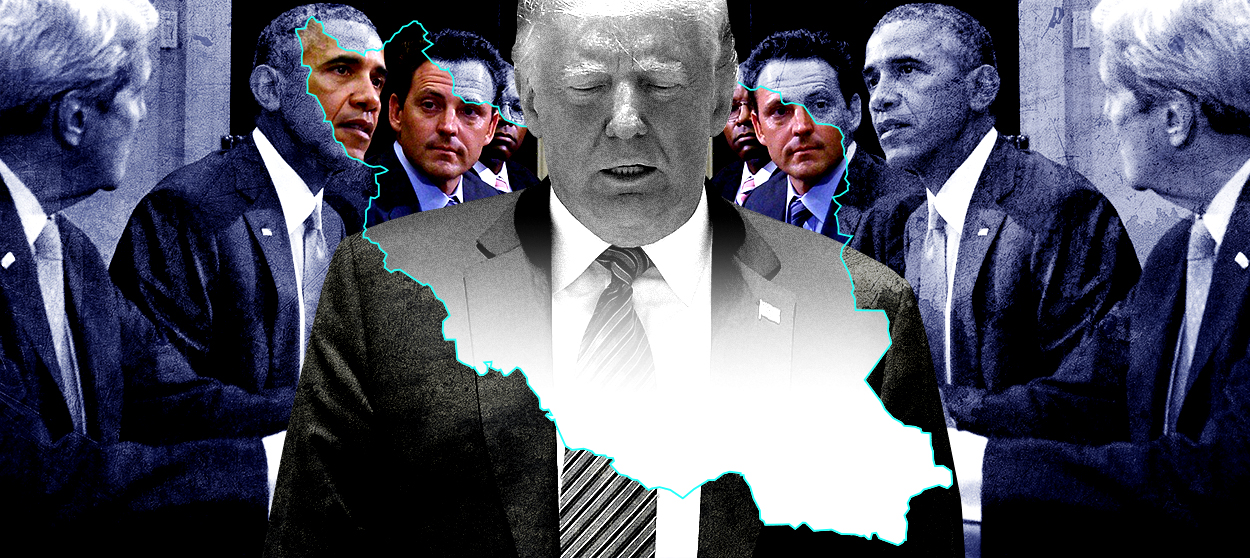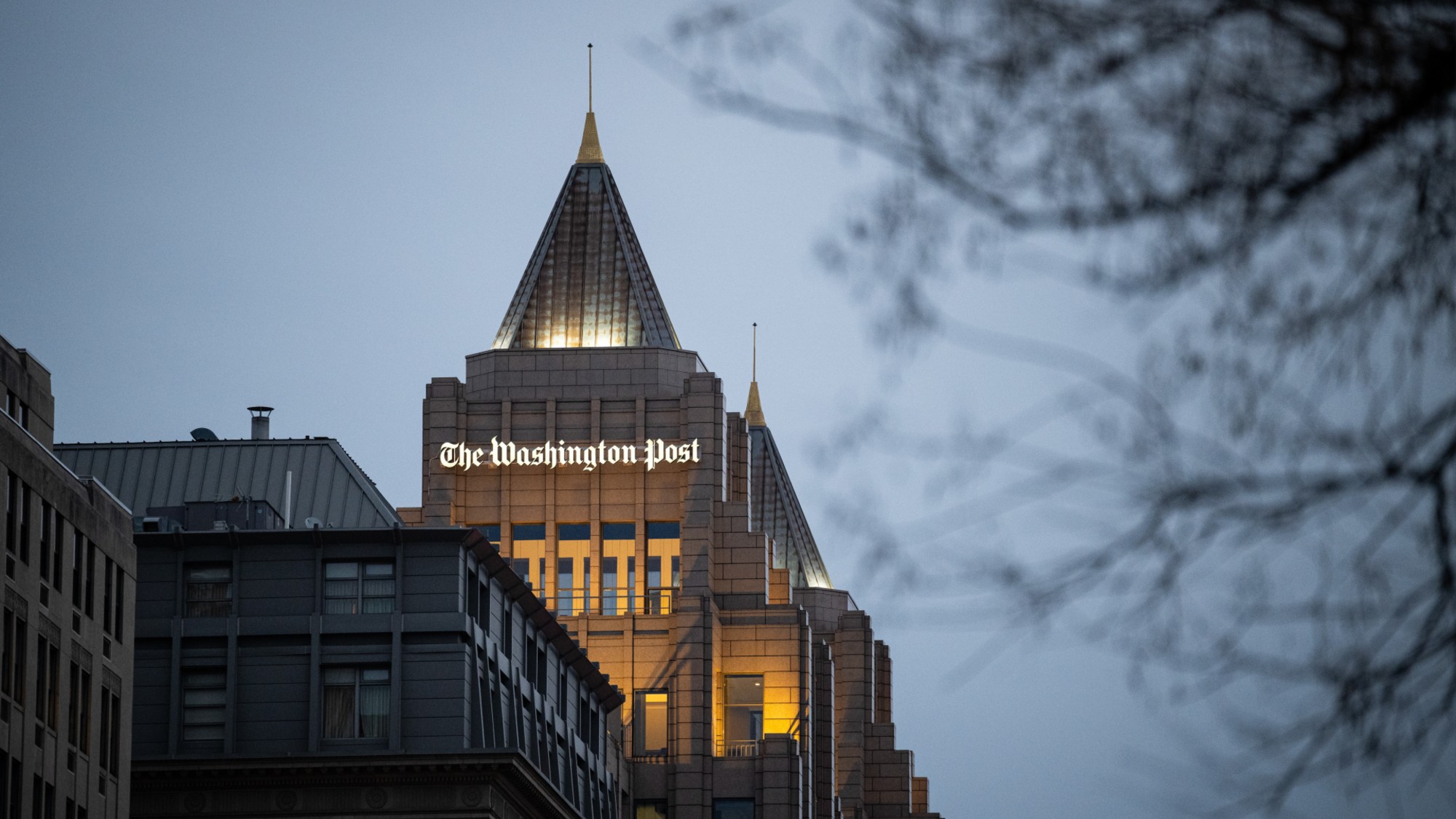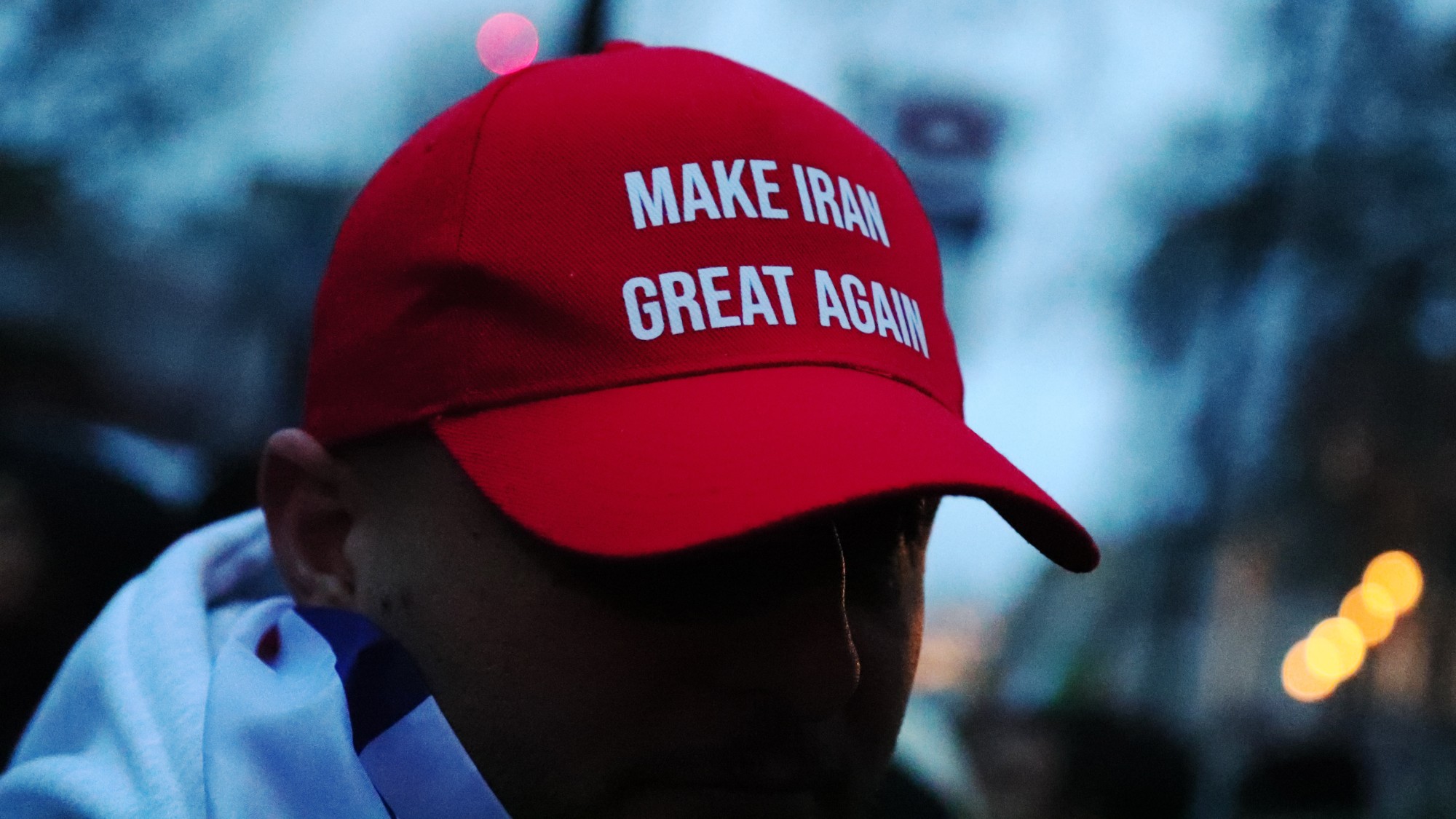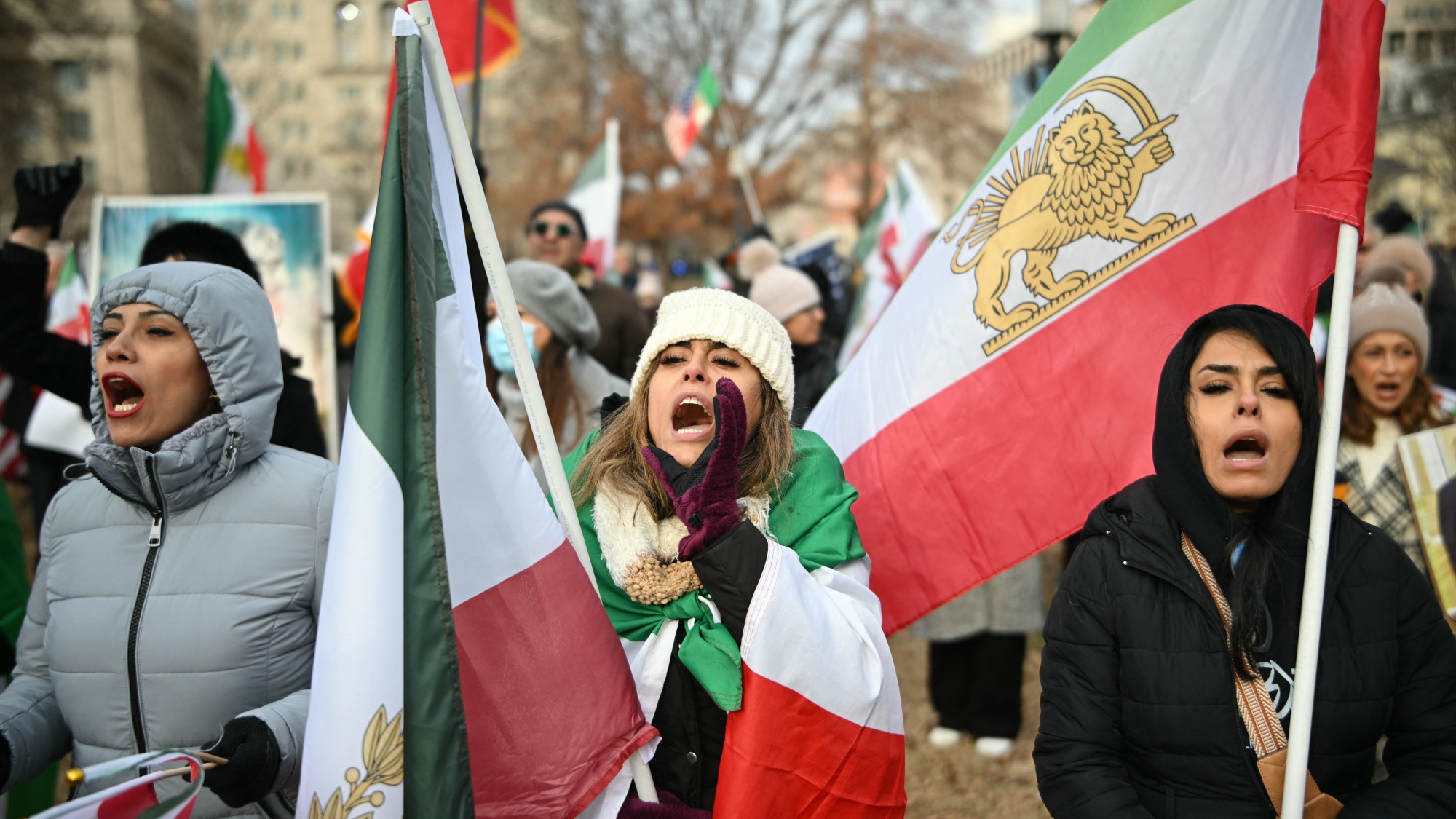Trump's embarrassing circus of Iran policy failure
None of this madness was ever remotely necessary


A free daily email with the biggest news stories of the day – and the best features from TheWeek.com
You are now subscribed
Your newsletter sign-up was successful
Future historians, gazing at our era from the comfort of their oceanfront Nevada houses, will surely have particular difficulty processing the brain-gobbling chain of events that has led the United States and Iran to the brink of a needless military confrontation this month. Thanks to a series of daft and counterproductive maneuvers, the Trump administration has deliberately blown apart a well-functioning, multilateral agreement with Tehran, reignited Iran's pursuit of nuclear weapons, and ratcheted up military tensions in and around the Persian Gulf. It adds up to an unmatched record of policy failure, a uniquely Trumpian spectacle of lies, hubris, and delusion that threatens to drag the United States into a war that not even the president seems to want.
None of this madness was ever remotely necessary. When he took office, President Trump inherited the fully functioning Joint Comprehensive Plan of Action (JCPOA), better known as the Iran Deal, from the Obama administration. The agreement, negotiated jointly with China, Russia, Germany, France and the U.K., was designed to keep the Iranian nuclear program effectively muzzled, in return for a significant loosening of U.N. economic sanctions. Under the terms of the deal, Iran's stockpiles of low-enriched uranium were dramatically reduced, its underground enrichment facility at Fordo converted to a research center, and its heavy water reactor at Arak (designed to produce weapons-grade plutonium) substantially modified. Most of those restrictions were to remain in effect until 2031.
It was a painstakingly negotiated accord, and an extraordinary achievement. It was also the best terms that the United States and its allies were ever going to get so long as the regime in Tehran remains in place. Importantly, U.S., European and Russian negotiators acceded to Iran's most important demand — the ability to control a peaceful nuclear fuel cycle on Iranian territory, a right clearly granted to the country under the terms of the Non-Proliferation Treaty (NPT). But Iran gave up a great deal in exchange.
The Week
Escape your echo chamber. Get the facts behind the news, plus analysis from multiple perspectives.

Sign up for The Week's Free Newsletters
From our morning news briefing to a weekly Good News Newsletter, get the best of The Week delivered directly to your inbox.
From our morning news briefing to a weekly Good News Newsletter, get the best of The Week delivered directly to your inbox.
The deal lengthened the so-called "break-out time" for Iran to crash-build a nuclear weapon from as little as two months to at least a year, granted inspectors from the International Atomic Energy Agency (IAEA) full access to all facilities, and made it more or less impossible for Iran to build a nuclear weapon in secret. In return, the "crippling" sanctions imposed by the U.N. were lifted — Iran was able to sell oil on the international market, regained access to the international financial and trading systems and placed large orders for things like commercial airliners, which they had been unable to purchase for decades.
Republican politicians, deranged with implacable loathing for Barack Obama, immediately denounced the agreement as surrender, with some arguing for military strikes against Iranian nuclear installations and others for further tightening of the sanctions noose to force either a total capitulation in negotiations or the regime collapse that Washington hardliners have been dreaming about for 40 years. Conservatives harped incessantly on the fact that billions in long-frozen Iranian assets were released as part of the deal, with candidate Trump of course twisting this perfectly unremarkable development into a story of Obama paying off Iran with taxpayer money. The sunset provisions — which could easily be extended by competent future negotiators — drove them mad, as if all agreements aren't subject to sudden termination no matter the language anyway, something America's current president has proven time and again. From the moment the ink was dry on the deal, basically every serious 2016 Republican presidential contender promised to tear it up.
In Donald Trump, the hawks found their man. After a brief delay when it seemed early advisers like James Mattis and Rex Tillerson might convince him otherwise, Trump proceeded to capriciously sabotage the JCPOA, withdrawing from it in May 2018 before imposing new sanctions on Iran in November. This dreadful decision led directly to a series of completely predictable problems and the escalation of already acute tensions. Tehran said in May that it would no longer abide by the terms of the deal, and has reportedly already begun the new uranium enrichment that was announced earlier this week. The U.S. sent a carrier battle group to the Persian Gulf in response to unnamed Iranian threats, adding fuel to a fire that has since been further stoked by a string of alleged Iranian attacks on international shipping.
This needless mayhem and brinkmanship can be traced directly back to the president himself. His total lack of thinking about what exactly would replace the JCPOA or how Iran would respond is reminiscent of the GOP's nihilistic health care policy. Burn it down and ask questions later. After all, you can always find some excessively-titled think tank goon to rationalize Trump's rhetorical incontinence and policy incoherence as part of some well-thought-out plan to pressure Iran into fresh talks.
A free daily email with the biggest news stories of the day – and the best features from TheWeek.com
Officially, the Trump team claims to want to negotiate a better deal with Tehran. But the staggering lack of self-awareness on display by the Trump administration here is truly world-historical. Who incinerates a perfectly good agreement, starts issuing empty threats and then demands that the other party come back and agree to less favorable terms? Trump's people apparently thought they could reproduce the series of events that led to the JCPOA in the first place by inflicting enough economic pain to bring the regime to the table. Setting aside the head-smashing lunacy of destroying an agreement only to then try to follow the policy footprints that got us there in the first place, they failed to reckon with the total collapse of trust in the United States precipitated by the unprovoked destruction of the JCPOA. Would you cut a deal with these people? I'd sooner have my blood tested by Elizabeth Holmes.
To make matters worse, the president, who has said publicly he doesn't want war with Iran, went ahead and appointed John Bolton, the most notorious Iran hawk in Washington, as his new National Security Adviser. Bolton of course, is the author of "To Stop Iran's Bomb, Bomb Iran," which he published during the JCPOA negotiations. It's like saying you want an amicable split from your partner and then showing up to arbitration with the most cutthroat divorce attorney in town. Even this week he has had Bolton and Secretary of State Mike Pompeo out there acting like we're on the brink of Pearl Harbor while Trump gets up in front of the cameras and says the tanker attacks are "very minor" and that we don't need the oil anymore anyway.
The president and his underlings have also failed to spell out even the rough contours of a new deal or the changes in Iranian policy they are seeking. What's the ask here for Iran? Cut off all aid to Hezbollah? Flee from the Yemeni civil war? Withdraw all militias from Iraq? Completely and permanently dismantle all nuclear sites in the country? The belief that any one of these things, let alone all of them, is likely to happen is the very worst kind of Washington wishcasting, a genre of inane hegemony porn to which everyone inside Gulf-funded think tanks and Fox News green rooms is furiously addicted.
Only the fact that this embarrassing circus of self-fulfilling policy failure has unfolded over the course of multiple years has inured us to its baseline stupidity as well as its narrative simplicity. It goes like this: President Trump, cheered along by almost the entirety of his party, destroyed the Iran Deal almost solely because it was crafted by Obama and must therefore have been Very Bad and Totally Unfair to Our Country. Blowing up the JCPOA made him feel good and special and powerful and he was able to skate by for a year without much consequence as the Europeans and Iranians worked diligently to keep the deal from unraveling altogether. After all, Trump has spent his entire career creating messes for other people to clean up.
But those delayed repercussions are now being felt. Even though the electoral implications of unprovoked aggression in the Middle East, like the bottom line of giant letters at an eye exam, are so obvious that even he can make them out, the president's destruction of the JCPOA, together with his decision to let the warhawks run around unsupervised, has brought the U.S. to the edge of the abyss with no clear plan for realizing our still-unspecified policy goals. Meanwhile in D.C., the spokesperson for the State Department says that Iran is threatening the JCPOA. And the irony of all of it is that President Trump knows and understands nothing about Iran, and is such an impressionable imbecile that if you let Khamenei walk him around Isfahan for a few hours he'd probably emerge with a new best friend and a totally different policy direction.
There are still at least 582 days left in this endless amateur hour. The Iranians have a saying for this kind of disarray: tagh o lagh, an idiom that evokes the last days of the school year when the students are checked out or absent and everyone is waiting for the end. Khoda vakili ("Honest to God"), I don't know if we're going to make it.
David Faris is a professor of political science at Roosevelt University and the author of "It's Time to Fight Dirty: How Democrats Can Build a Lasting Majority in American Politics." He's a frequent contributor to Newsweek and Slate, and his work has appeared in The Washington Post, The New Republic and The Nation, among others.
-
 Antonia Romeo and Whitehall’s women problem
Antonia Romeo and Whitehall’s women problemThe Explainer Before her appointment as cabinet secretary, commentators said hostile briefings and vetting concerns were evidence of ‘sexist, misogynistic culture’ in No. 10
-
 Local elections 2026: where are they and who is expected to win?
Local elections 2026: where are they and who is expected to win?The Explainer Labour is braced for heavy losses and U-turn on postponing some council elections hasn’t helped the party’s prospects
-
 6 of the world’s most accessible destinations
6 of the world’s most accessible destinationsThe Week Recommends Experience all of Berlin, Singapore and Sydney
-
 Witkoff and Kushner tackle Ukraine, Iran in Geneva
Witkoff and Kushner tackle Ukraine, Iran in GenevaSpeed Read Steve Witkoff and Jared Kushner held negotiations aimed at securing a nuclear deal with Iran and an end to Russia’s war in Ukraine
-
 ‘The mark’s significance is psychological, if that’
‘The mark’s significance is psychological, if that’Instant Opinion Opinion, comment and editorials of the day
-
 ‘My donation felt like a rejection of the day’s politics’
‘My donation felt like a rejection of the day’s politics’Instant Opinion Opinion, comment and editorials of the day
-
 How Iran protest death tolls have been politicised
How Iran protest death tolls have been politicisedIn the Spotlight Regime blames killing of ‘several thousand’ people on foreign actors and uses videos of bodies as ‘psychological warfare’ to scare protesters
-
 ‘It may portend something more ominous’
‘It may portend something more ominous’Instant Opinion Opinion, comment and editorials of the day
-
 What are Donald Trump’s options in Iran?
What are Donald Trump’s options in Iran?Today's Big Question Military strikes? Regime overthrow? Cyberattacks? Sanctions? How can the US help Iranian protesters?
-
 Unrest in Iran: how the latest protests spread like wildfire
Unrest in Iran: how the latest protests spread like wildfireIn the Spotlight Deep-rooted discontent at the country’s ‘entire regime’ and economic concerns have sparked widespread protest far beyond Tehran
-
 The billionaires’ wealth tax: a catastrophe for California?
The billionaires’ wealth tax: a catastrophe for California?Talking Point Peter Thiel and Larry Page preparing to change state residency
